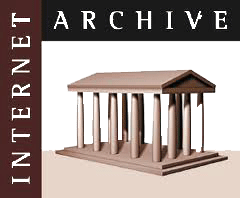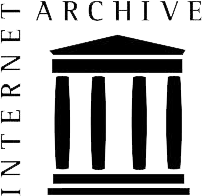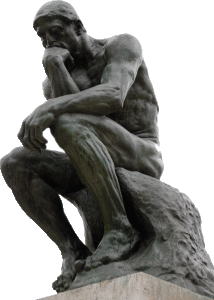 Welcome to Getting Access, a series devoted to helping you obtain the digital records you need.
Have you ever searched for a book online only to find that Google Books does not have the antiquarian tome you were looking for?
Welcome to Getting Access, a series devoted to helping you obtain the digital records you need.
Have you ever searched for a book online only to find that Google Books does not have the antiquarian tome you were looking for?
If so, you should give the Internet Archive a try.
In fact, the Internet Archive contains digital records that will help all historians, no matter what period you study.
In this post you will learn what the Internet Archive is and why it is an excellent digital resource for historians.
Internet Archive
 Founded in 1996, the Internet Archive is an internet library that offers historians, researchers, and members of the general public “permanent access” to historical collections.
Founded in 1996, the Internet Archive is an internet library that offers historians, researchers, and members of the general public “permanent access” to historical collections.
The goal of the Internet Archive is to create a comprehensive archive of our 21st-century digital world. It has partnered with several institutions, including the Library of Congress and the Smithsonian to ensure the preservation of the Internet's digital record.
Its digital archive includes historical texts, audio, videos, software, and archived webpages.
The Internet Archive strives to provide free, open access to literature and other writings that society has deemed essential to its education and maintenance.
Records: Antiquarian Books
The Internet Archive provides digital access to many antiquarian books.
In addition to conducting it own scanning projects at libraries such as the Boston Public Library, the Internet Archive has indexed many books from the Google Books Project.
 This indexing can be helpful when you search for a book as the Internet Archive's search engine will turn up results in both the Internet Archive database and the Google Books library.
This indexing can be helpful when you search for a book as the Internet Archive's search engine will turn up results in both the Internet Archive database and the Google Books library.
With that said, the Internet Archive has not indexed every book in the Google Books library.
I have also found variations in the holdings of Google Books and the Internet Archive.
The Internet Archive sometimes has books that Google Books does not and vice versa.
Therefore, I usually search the Internet Archive first, but if my search does not turn up the book I am looking for, I will try a search in Google Books directly.
When you find a book you want to read, the Internet Archive will provide you with links to all available file formats. These formats include: PDF, Black-and-White PDF, ePub, Kindle, Daisy, Full Text, Metadata, DjVu. Not every book is available in every file format.
Records: Other Files
A click of the Internet Archive drop-down menu shows that the archive contains a huge array of different file types.
Beyond texts you can use the Internet Archive to search for video of news, movies, cartoons, vlogs, and sports broadcasts; audio files of podcasts, radio programs, and music; educational lectures and internet forum discussions.
Conclusion
The Internet Archive stands as an invaluable resource for any historian, especially those with limited library access. It has an extensive array of holdings that all historian will find useful.
 What Do You Think?
What Do You Think?
Have you used the Internet Archive’s non-text files? What is your impression of their holdings?
What is your favorite web-based archive?
